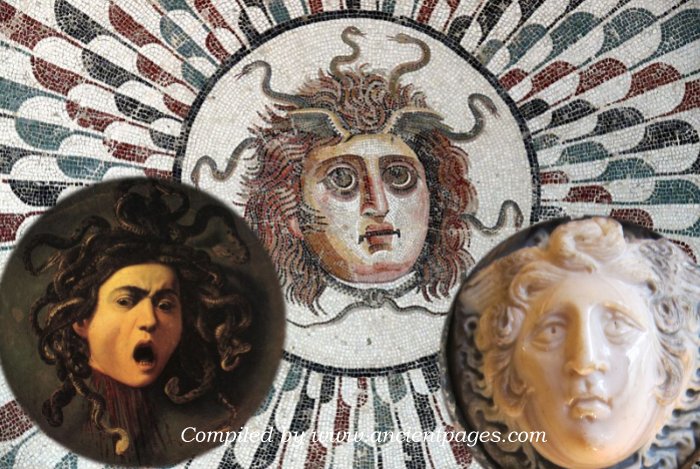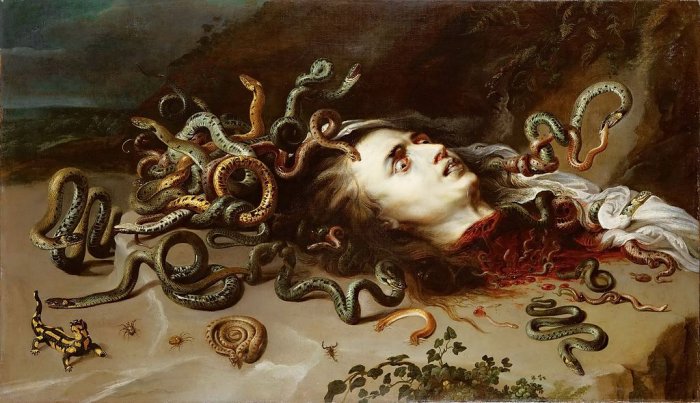Medusa – Cursed By Athena And Killed By Perseus
David Tee - AncientPages.com - Depending on the myth version you read, Medusa was not always a monster. Most myths mention her as the black sheep of the family.
She was the beautiful one in a family of ugly monsters. She and her two sisters, Stheno and Euryale, lived with their parents, Phorcys and Ceto.
Their home was either in Libya or Oceanus, according to some myths. For some reason, Medusa was the only mortal among the sisters. But this did not stop Neptune from pursuing and winning her favors.
Unfortunately, this took place in the temple of Minerva. The goddess Minerva (Athena) was unhappy about this behavior and cursed Medusa. Her beautiful head was changed to that of a head full of snakes.
Her features also changed and were so ugly that whoever looked at her face was turned into stone.
Medusa’s Famous Encounter With Perseus
It seems that Medusa’s fate was sealed once she was cursed. While little is written of her life, probably because no one survived an encounter with her, we have the story of her death.
On a boast, Perseus sought Medusa out to defeat her once and for all. He boasted of impressing a king who was after his mother. Once the king issued the challenge, Perseus had no choice but to do battle with Medusa.
Perseus with the head of Medusa, Benvenuto Cellini (1554). Credit: Public Domain
What was tragic for Medusa was that Perseus had some help from the gods. He was given special weapons to defeat her and escape her monstrous siblings.
Medusa Is Full Of Surprises And Death Did Not Stop Her
The myths have it that Neptune, or in some stories Poseidon, impregnated Medusa after their brief encounter. It may have been why the goddess of virginity was so upset. It is hard to say, though.
However, death did not stop Medusa from reproducing. When her head was taken from her body, it is said that her two children, Chrysaor and Pegasus, came to life and were born. Pegasus was the famed winged horse that contributed significantly to ancient lore.
Her head and gaze still held their power long after her death. It is said that Perseus used Medusa’s severed head to turn Atlas into stone, whereby he created the Atlas Mountains located in North Africa.
Peter Paul Rubens - The severed head of Medusa. Painting created 1617-1618. Credit: Public Domain
Then while flying over Libya, some of Medusa’s blood dripped onto the desert sand and created the Libyan vipers, dangerous serpents that killed one Argonaut and countless others.
Medusa’s Name Means To Protect
It is the irony of it all. Medusa was turned into a hideous monster who took all lives that merely gazed upon her face. Yet, when her head was given to Athena by Perseus, Athena used her image on armor and a shield. Medusa’s face was used to protect those who used that image when defending their country.
Athena also removed a lock of Medusa’s hair and stored it away. She initially gave it to Hercules, who gave it to Cepheus’ daughter so that she could protect her town. Although it did not have the stone-turning power once held by Medusa, the lock of her hair could still terrify opposing hardened warriors.
Her being a monster did not stop artists from preserving her likeness in their art forever. The Temple of Artemis is one known place where her features are prominently adorned. She is also captured in a marble statue and embodied in a famous cup by Douris.
The Romans were not to be left out, either. They used her likeness on ship beams and other weapons of war.
The Fate Of Medusa
There is a question or two that needs to be asked here. Was Medusa always a monster, one that was hiding under her beautiful skin? Or did she become a nightmare once she saw that she lost her looks over what may have been an innocent connection in the wrong place?
It is something to think about.
Written by – David Tee - AncientPages.com
Copyright © AncientPages.com All rights reserved. This material may not be published, broadcast, rewritten or redistributed in whole or part without the express written permission of AncientPages.com
Expand for references
More From Ancient Pages
-
 Rare Three-Bladed Arrowhead Hidden Under The Ice Was Last Touched By A Viking – Scientists Say
Archaeology | Jan 4, 2023
Rare Three-Bladed Arrowhead Hidden Under The Ice Was Last Touched By A Viking – Scientists Say
Archaeology | Jan 4, 2023 -
 Hiawatha And The Legendary Great Peacemaker – Native American Heroes Who Founded The League Of The Iroquois
Featured Stories | Feb 25, 2019
Hiawatha And The Legendary Great Peacemaker – Native American Heroes Who Founded The League Of The Iroquois
Featured Stories | Feb 25, 2019 -
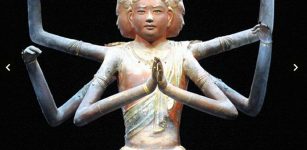 CT Scan Reveals Repairs And Damage Of 1,300-Year-Old Three-Headed And Six-Armed Statue
Archaeology | Feb 23, 2017
CT Scan Reveals Repairs And Damage Of 1,300-Year-Old Three-Headed And Six-Armed Statue
Archaeology | Feb 23, 2017 -
 Yokai Kitsune: Charming And Cunning Liar With Double Nature In Japanese Folklore
Featured Stories | May 22, 2020
Yokai Kitsune: Charming And Cunning Liar With Double Nature In Japanese Folklore
Featured Stories | May 22, 2020 -
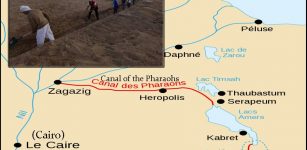 Large Fortress And Wall Uncovered On The Nile Delta Mark Power Of Egypt’s Canal Of the Pharaohs
Archaeology | Dec 29, 2017
Large Fortress And Wall Uncovered On The Nile Delta Mark Power Of Egypt’s Canal Of the Pharaohs
Archaeology | Dec 29, 2017 -
 On This Day In History: Scottish Hero William Wallace Who Met Horrible Death – Is Still Remembered – August 23, 1305
News | Aug 23, 2016
On This Day In History: Scottish Hero William Wallace Who Met Horrible Death – Is Still Remembered – August 23, 1305
News | Aug 23, 2016 -
 One Of The Biggest Bronze Age Settlements On Orkney – Discovered
Archaeology | Dec 11, 2015
One Of The Biggest Bronze Age Settlements On Orkney – Discovered
Archaeology | Dec 11, 2015 -
 Remarkably Well-Preserved Afragola Village After The Vesuvio Eruption 4,000-Years Ago
Archaeology | Sep 29, 2022
Remarkably Well-Preserved Afragola Village After The Vesuvio Eruption 4,000-Years Ago
Archaeology | Sep 29, 2022 -
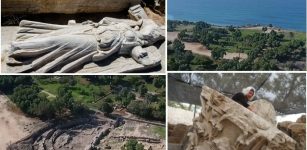 Huge 2,000-Year-Old Roman Basilica Discovered In Israel May Have Been Built By Herod The Great
Archaeology | Jul 29, 2021
Huge 2,000-Year-Old Roman Basilica Discovered In Israel May Have Been Built By Herod The Great
Archaeology | Jul 29, 2021 -
 Secrets Of Lake Huron – Mysterious Disappearance Of Long-Lost Steamship Solved
Archaeology | Nov 3, 2023
Secrets Of Lake Huron – Mysterious Disappearance Of Long-Lost Steamship Solved
Archaeology | Nov 3, 2023 -
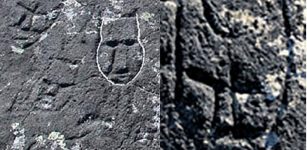 Dorset Culture: Mysterious Rock Carvings Of Qajartalik – Faces Of Unknown Beings
Civilizations | Sep 3, 2018
Dorset Culture: Mysterious Rock Carvings Of Qajartalik – Faces Of Unknown Beings
Civilizations | Sep 3, 2018 -
 Machu Picchu Is Older Than Previously Thought – New Study Reveals
Archaeology | Aug 4, 2021
Machu Picchu Is Older Than Previously Thought – New Study Reveals
Archaeology | Aug 4, 2021 -
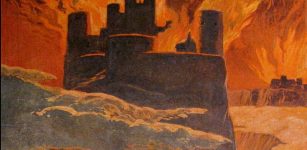 Ragnarok In Norse Mythology – The Doom Of The Gods And Apocalyptic Record Of The Coming Comet
Featured Stories | Jun 30, 2014
Ragnarok In Norse Mythology – The Doom Of The Gods And Apocalyptic Record Of The Coming Comet
Featured Stories | Jun 30, 2014 -
 Mysterious Visitors From Other Realms And Enigma Of Atmospheric Phenomena
Featured Stories | Jul 19, 2018
Mysterious Visitors From Other Realms And Enigma Of Atmospheric Phenomena
Featured Stories | Jul 19, 2018 -
 500-Year-Old Transylvanian Diaries Reveal How The Little Ice Age Transformed Life And Death In The Region
Archaeology | Feb 12, 2025
500-Year-Old Transylvanian Diaries Reveal How The Little Ice Age Transformed Life And Death In The Region
Archaeology | Feb 12, 2025 -
 Roman Shipwreck Carrying Enormous, Rare Cargo Of 1,800-Year-Old Marble Artifacts Found
Archaeology | May 19, 2023
Roman Shipwreck Carrying Enormous, Rare Cargo Of 1,800-Year-Old Marble Artifacts Found
Archaeology | May 19, 2023 -
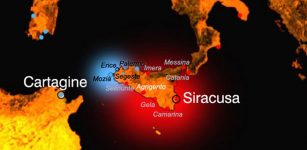 Battle Of Himera: New Study That Contradicts Historical Accounts
News | May 24, 2021
Battle Of Himera: New Study That Contradicts Historical Accounts
News | May 24, 2021 -
 Strange Case Of The Italian Doppelganger – Collision Of Parallel Timelines? Part 2
Featured Stories | Oct 16, 2019
Strange Case Of The Italian Doppelganger – Collision Of Parallel Timelines? Part 2
Featured Stories | Oct 16, 2019 -
 Forbidden Ancient Manuscripts Almost Erased From History – Secret Teachings Of Mysterious Founder – Part 1
Ancient Mysteries | May 10, 2018
Forbidden Ancient Manuscripts Almost Erased From History – Secret Teachings Of Mysterious Founder – Part 1
Ancient Mysteries | May 10, 2018 -
 Paracelsus: Physician, Alchemist, Philosopher Well Ahead Of His Time
Featured Stories | Apr 28, 2016
Paracelsus: Physician, Alchemist, Philosopher Well Ahead Of His Time
Featured Stories | Apr 28, 2016

